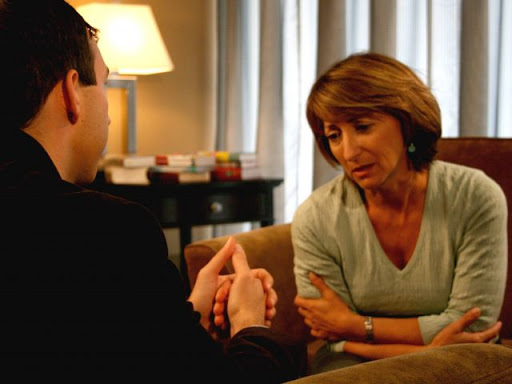
Role of Therapy in Rehabilitation
The journey to recovery from addiction is a complex and transformative process, often requiring multifaceted approaches to address the physical, mental, and emotional aspects of substance abuse. Therapy plays a pivotal role in rehabilitation, offering individuals the support, tools, and insights necessary for sustained recovery. In this blog post, we will explore the distinct roles of individual, group, and family therapy sessions in the rehabilitation process, highlighting their contributions to the healing journey.
1. Individual Therapy:
Overview:
Individual therapy, also known as one-on-one counseling, is a fundamental component of rehabilitation. It provides a confidential and personalized space for individuals to explore their thoughts, emotions, and behaviors related to addiction.
Key Components:
- Tailored Treatment Plans:
- Individual therapy allows for the development of personalized treatment plans based on the unique needs, goals, and challenges of the individual. Therapists work collaboratively with clients to tailor interventions to their specific circumstances.
- Exploration of Underlying Issues:
- Therapists help individuals delve into the root causes of their addiction, addressing underlying issues such as trauma, co-occurring mental health disorders, or unresolved emotional pain.
- Cognitive-Behavioral Approaches:
- Common therapeutic modalities employed in individual sessions include cognitive-behavioral therapy (CBT), dialectical behavior therapy (DBT), and motivational interviewing. These approaches aim to identify and modify harmful thought patterns, develop coping mechanisms, and enhance motivation for change.
- Relapse Prevention Strategies:
- Individual therapy is instrumental in developing relapse prevention strategies. Therapists and clients collaboratively identify triggers, establish coping mechanisms, and create effective plans for managing cravings and stressors.
- Emotional Processing and Healing:
- Therapy provides a safe space for individuals to process and express their emotions. This emotional exploration is essential for healing and building healthier coping mechanisms.

2. Group Therapy:
Overview:
Group therapy involves individuals coming together in a structured setting facilitated by a trained therapist. It fosters a sense of community, mutual support, and shared experiences among participants.
Key Components:
- Peer Support and Connection:
- Group therapy creates a supportive community where individuals can share their struggles, successes, and insights with peers who understand the challenges of addiction. This sense of connection reduces feelings of isolation and fosters a supportive network.
- Diverse Perspectives:
- Participants in group therapy bring diverse perspectives and experiences to the table. This diversity allows individuals to gain insights from others, broaden their understanding of addiction, and learn from different coping strategies.
- Skill-Building:
- Group sessions often include skill-building activities and exercises. Participants learn and practice new skills, such as effective communication, conflict resolution, and stress management, which are crucial for maintaining recovery.
- Universality and Normalization:
- The concept of universality in group therapy emphasizes that individuals are not alone in their struggles. Understanding that others share similar challenges can normalize experiences, reduce shame, and enhance the collective strength of the group.
- Feedback and Accountability:
- Group members can provide constructive feedback and hold each other accountable. This dynamic encourages personal responsibility and helps individuals become aware of patterns that may hinder their recovery.
3. Family Therapy:
Overview:
Family therapy recognizes the impact of addiction on the entire family system. It involves sessions that include not only the individual in recovery but also family members or significant others.
Key Components:
- Communication Enhancement:
- Family therapy focuses on improving communication patterns within the family. Effective communication is crucial for understanding each other’s experiences, expressing concerns, and building a supportive environment.
- Educational Components:
- Family therapy often includes educational components about addiction, helping family members understand the nature of the disease, the recovery process, and how they can contribute to a positive and supportive home environment.
- Setting Boundaries:
- Therapists work with families to establish healthy boundaries that support the individual in recovery. Clear boundaries help prevent enabling behaviors and promote an atmosphere conducive to healing.
- Addressing Codependency:
- Codependency issues are often addressed in family therapy. This involves helping family members recognize and address unhealthy patterns of behavior that may contribute to the cycle of addiction.
- Rebuilding Trust:
- Addiction can strain trust within a family. Family therapy provides a space for open dialogue, forgiveness, and the rebuilding of trust. It facilitates a collective commitment to supporting the individual’s recovery journey.
Conclusion:
The role of therapy in rehabilitation is multifaceted, addressing the diverse needs of individuals recovering from addiction. Individual therapy provides personalized attention and explores the unique factors contributing to addiction. Group therapy fosters a sense of community, peer support, and shared learning experiences. Family therapy recognizes the broader impact of addiction on familial relationships and provides a platform for healing within the family system.
In a comprehensive rehabilitation program, these therapeutic modalities work synergistically, providing individuals with a well-rounded and holistic approach to recovery. The combination of individual, group, and family therapy allows individuals to address the intricacies of addiction, develop essential coping skills, and build a strong support network for sustained recovery with the power of rehabilitation. As individuals progress through these therapy sessions, they not only gain valuable insights into their own journey but also contribute to a collective process of healing and transformation.






